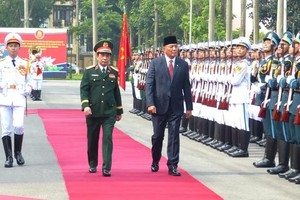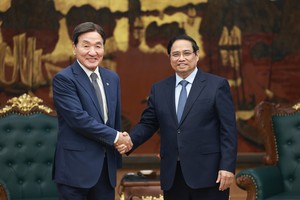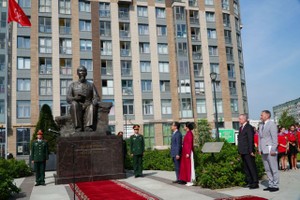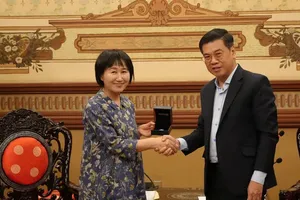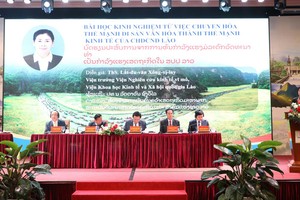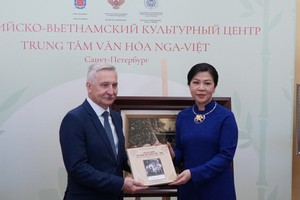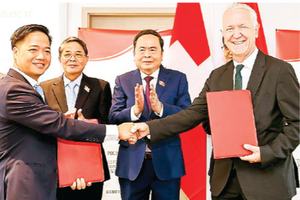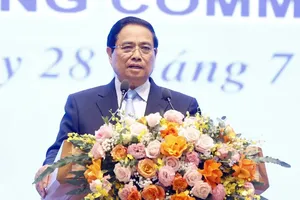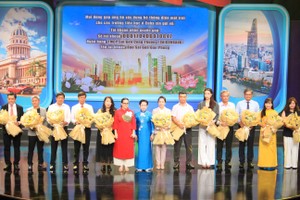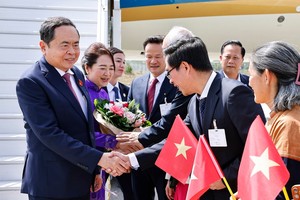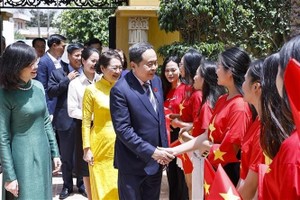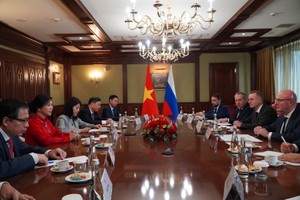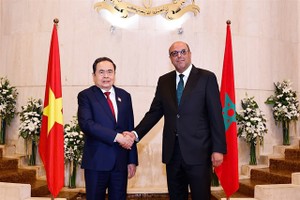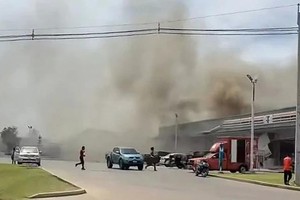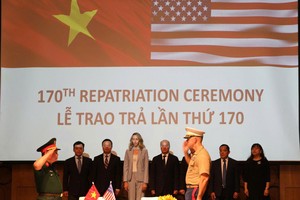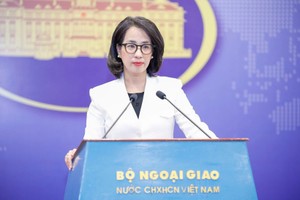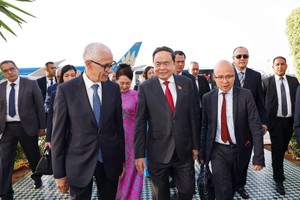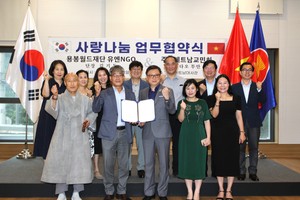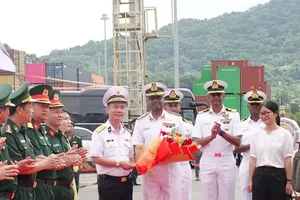BANGKOK, June 28, 2011 (AFP) - The divisions that plague Thai society will deepen further after Sunday's election unless arch-enemies within the political realm agree to respect the verdict of the polls, analysts say.
Ahead of the July 3 vote which is crucial to the future of the Southeast Asian nation, few observers expect the winner will be able to quietly take power for a four-year term and face opposition merely from within parliament.
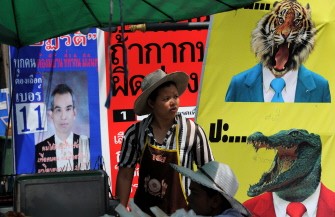
The election is largely a battle between the establishment-backed, ruling Democrats led by Prime Minister Abhisit Vejjajiva, and the opposition Puea Thai, spearheaded from exile by former premier Thaksin Shinawatra.
Five years on from a military coup that deposed Thaksin and triggered years of bloody political crisis, the billionaire remains a figure who crystallises debate in Thailand, where he is still both widely adored and hated.
Two major political movements have formed around his personality: the anti-Thaksin, royalist "Yellow Shirts" tacitly backed by the nation's elites, and the largely working-class and rural "Red Shirts" who are his loyalists.
The years since Thaksin's expulsion from power have been marked by mass street rallies by both movements.
Last year the Reds brought Bangkok to a standstill with a two month-long demonstration that drew an estimated 100,000 people at its peak, and ended in an army crackdown that left more than 90 people dead.
Many observers fear a resurgence of street demonstrations over the coming months.
"This election will lead to more violence and unrest because no matter who forms the next government, be it the Puea Thai or be it the Democrats, there will be protesters in the streets opposing these parties," said Paul Chambers, a senior research fellow at Payap University in northern Chiang Mai city.
"That means that neither party can really claim legitimacy, a mandate from the entire Thai people."
Another factor is the country's long tradition of electoral irregularities. Only one international monitoring group, and no foreign governments, will send observers to polling stations.
Aswin Kongsiri, a Thai businessman on the board of several companies and the Stock Exchange of Thailand, said it was very important that the elections were seen to be "as fair as possible".
"If one side believes it is unfair, because of the intervention of the military, because of the buying of voters, because of stuffing of the ballots, -- all of that can happen -- that could cause the losing side to take to the streets."
Thailand's army is frequently cited by analysts in possible worst case scenarios that could engulf the nation: their intervention to overthrow Thaksin in 2006 was just the latest of 18 actual or attempted coups since 1932.
Thaksin's youngest sister Yingluck, a 44-year-old political novice and businesswoman, is the opposition's candidate for premier.
Smiling and photogenic, she has quickly gathered momentum and taken the lead over Abhisit in the polls, including even in the capital -- the establishment's heartland.
She is expected to clinch a minority win which would give her the chance to try to form a coalition government.
But the question remains whether Thailand's elite would accept the return of Thaksin's allies to power. His party has raised the possibility of a general amnesty for politicians, which would pave the way for his homecoming.
From his base in Dubai, the former telecoms tycoon has repeatedly expressed his keenness to attend his daughter's wedding in Thailand in December -- a prospect that horrifies the elites.
"It's time to get rid of the poison of Thaksin," Abhisit told a campaign rally recently, pointedly held at the main site of last year's rival Red Shirt demonstration.
If voters did not support the ruling party, "in the future Thai people will be held hostage by people who love violence," Abhisit added, marking an aggressive turn in the campaign with a willingness to demonise the opposition.
Among the scenarios that could prevent Thaksin's allies from taking power would be a court decision that disqualified them from ruling. The Democrats could also put pressure on minority parties to refuse to work with Yingluck.
A third politician from a minority group, not subservient to either of the two major parties, could also exploit the divisions to manoeuvre himself into the key post.
But beyond the partisan negotiations, the crucial player is the rich and powerful army.
"We must accept political reality," said Pichai Chuensuksawadi, editor in chief of the Bangkok Post daily.
"The military through the decade, in various degrees, has played a political role despite public declarations", he said.
For the country to move forward, if the Puea Thai wins on Sunday, "an understanding needs to be reached with the military".
